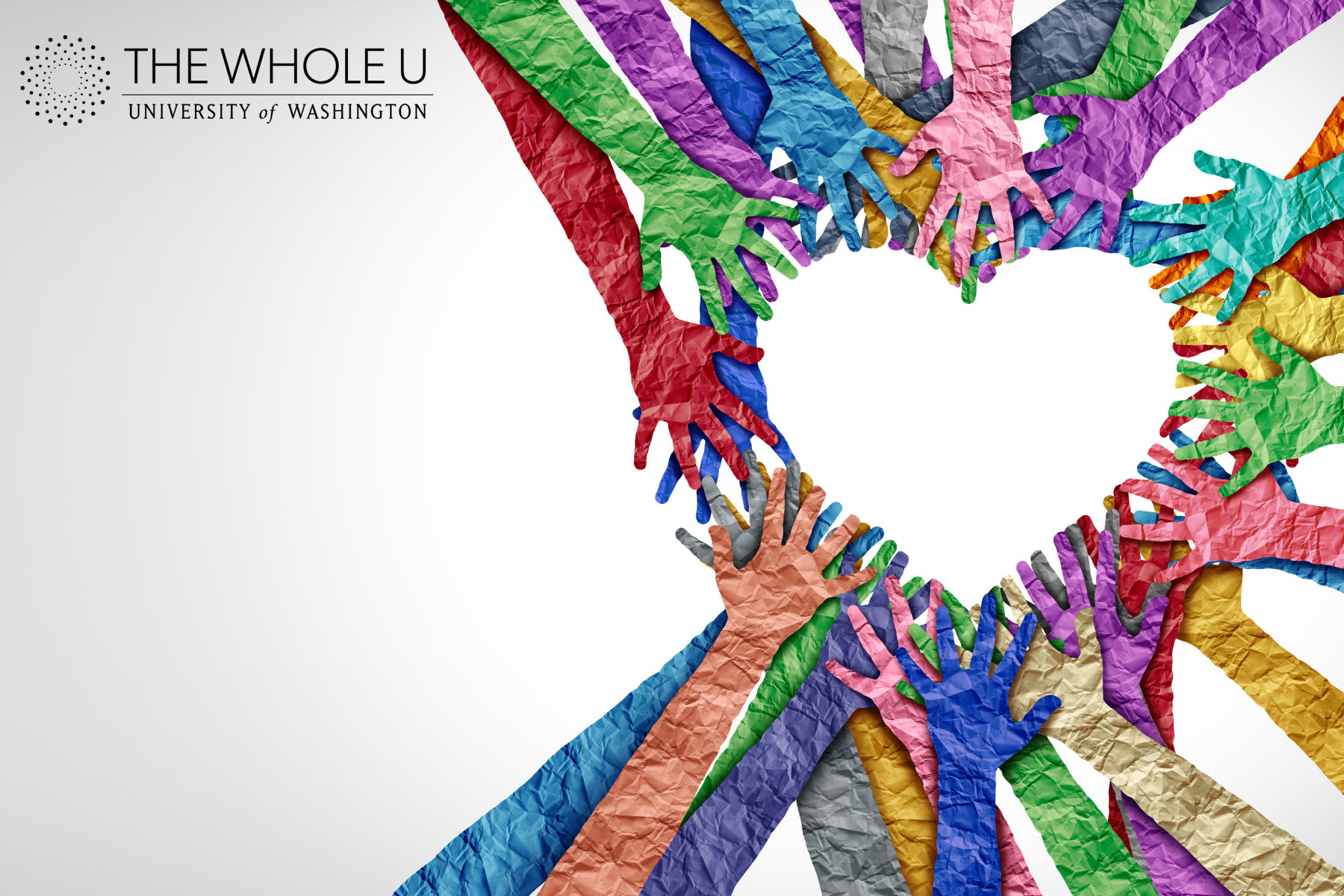
Trauma Care & Resources for UW Staff
As we continue to navigate the overwhelming effects of the Covid-19 pandemic on our lives, many of us are facing additional stressors and deepened challenges to our mental health.
Events like the pandemic can result in what’s called collective trauma, and it’s normal to experience changes to how we process information, communicate, and care for ourselves or others as a result.
Understanding trauma
Trauma is a result of an incident or series of events that can have harmful effects on an individual. Trauma has many definitions and forms – it could come from a one-time event such as an accident, an ongoing occurrence or experience, or a combination of many.
Related: People are developing trauma-like symptoms as the pandemic wears on (NPR)
The experience of trauma may even be compounded by previous experiences. Examples might include experiencing:
- Financial and/or food insecurity
- Abuse or distress
- A chronic health condition
- A global pandemic such as Covid-19
While each of our experiences and definitions of trauma may vary, one thing remains – trauma can deeply impact mental health and well-being. It can have a variety of short and long-term impacts such as:
- Struggling to focus or process information
- Trouble falling or staying asleep
- Struggling to connect with body sensations or cues (example: hunger, fullness, feeling out of body)
- Challenges to communication
- Feeling unsafe
- Many other experiences
Finding connection and support
A traumatic experience can be disorienting and isolating, it’s important to acknowledge that and validate every emotion that may come up. Working towards healing looks different for everyone and might include connecting to mental health support, practicing mindfulness, creating a self-care routine, or being in community with others.
Learn: How to Get Help If You Can’t See a Therapist Right Now (UW Medicine)
Wherever you are on your journey, consider the below events and resources.
Upcoming events
Yoga for Hope and Healing
Wednesday, Sept. 14 5:30-6:30pm
Join this virtual trauma-sensitive yoga class that mixes strengthening movements with restorative stretches. This slower paced class is great for all levels, whether you’re new to yoga or you’ve been practicing for awhile. No props are needed but you might consider having a mat, towel, or blankets nearby. Register here.
Coping with Trauma and Transition
Thursday, Sept. 22 11:30am-12:30pm
Join this upcoming workshop led by Dr. Jane Simoni to learn more about trauma and its impacts on mental health. At the end of the recorded portion of the presentation, attendees will have the option to connect further in breakout groups. Register here.
Additional Resources to Consider
UW’s Employee Assistance Program
Find an array of work/life resources that go beyond the ordinary. From counseling and legal assistance to financial resources and employee support programs. WA EAP offer comprehensive solutions to meet your unique needs. These services are staffed by local professionals in Washington, ensuring personalized support that aligns with our commitment to your well-being. Starting July 1, 2023: Contact WA EAP at 877-313-4455 for services.
The UW Resilience Lab
The UWRL aims to bring the UW community into connection with one another through programming that normalizes the wide-ranging experiences of hardship, failures, and setbacks our community members face through the cultivation of kindness, compassion, and gratitude toward each other and ourselves.
UW Center for Child and Family Well-being
The CCFWB promotes the mental health and well-being of children and youth—by conducting scientific research and translating our findings into effective practices for parents, caregivers, educators, and practitioners. They offer a number of resources on adversity, trauma and toxic stress with evidence-based approaches to promote healing.